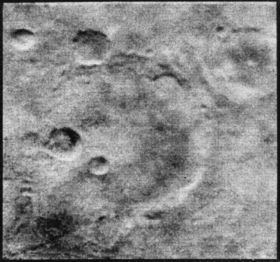1968: A Space, and Financial Services, Odyssey

In the spring of 1968, sci-fi fans in the United States and, later, around the world, were treated to a film which would have a lasting effect on movie history. Filmmaker Stanley Kubrick and novelist Arthur C. Clarke’s collaboration, 2001: A Space Odyssey, was the talk of the movie-going public. If you’re not familiar with the movie, I won’t ruin it here (although you’ve had 50+ years to watch it), as the film is now widely considered one of the best ever made. But at the time, that wasn’t something many agreed on — plenty of viewers left the theater confused and dissatisfied. Famed critic Roger Ebert, though, summed up their experience, disapprovingly, in his glowing review of the film: “Two out of three people who see it will assure you it is too long, or too difficult, or (worst of all) merely science fiction, In fact, it is a beautiful parable about the nature of man. Perhaps it is the nature of man not to wish to know too much about his own nature.”
That’s pretty deep — “a beautiful parable about the nature of man.” And it’s also true. But it’s also true that 2001 is, ultimately, a movie about alien lifeforms interacting with humankind. And that, for Kubrick, posed a real-life problem.
Kubrick began work on the film in May of 1964, about four years before it would ultimately hit theaters. His goal was to take sci-fi into the mainstream, making it relatable to virtually everyone. Strongly suggesting the idea that we humans aren’t alone in the universe was a core part of his efforts; while sci-fi fans of all ages had regularly discussed such possibilities, those conversations rarely went much further. Kubrick hoped to change that — he wanted to spark a conversation about humanity’s place in the universe. But a few months into the project, reality threatened to get in the way.
 On November 28, 1964, NASA launched Mariner 4, a spacecraft designed to fly by Mars and take some pictures. Mariner 4 wasn’t ever going to get all that close — at its nearest point, it would be just under 10,000 kilometers from the Martian surface. NASA was expecting grainy pictures, at best, not detailed imagery from one of our nearest planetary neighbors. (The “best” picture Mariner 4 yielded is on the right.) But Kubrick feared the worst: that Mariner 4 would discover intelligent life. And while that would be really, really cool for NASA and, for that matter, everyone else, it’d make 2001: A Space Odyssey a lot less interesting — and a lot less profitable.
On November 28, 1964, NASA launched Mariner 4, a spacecraft designed to fly by Mars and take some pictures. Mariner 4 wasn’t ever going to get all that close — at its nearest point, it would be just under 10,000 kilometers from the Martian surface. NASA was expecting grainy pictures, at best, not detailed imagery from one of our nearest planetary neighbors. (The “best” picture Mariner 4 yielded is on the right.) But Kubrick feared the worst: that Mariner 4 would discover intelligent life. And while that would be really, really cool for NASA and, for that matter, everyone else, it’d make 2001: A Space Odyssey a lot less interesting — and a lot less profitable.
His solution? Insurance. According to the New Yorker, “Kubrick grew so concerned that an alien encounter might be imminent that he sought an insurance policy from Lloyd’s of London in case his story got scooped during production.”
Kubrick definitely went to the right insurer; Lloyd’s of London has a well-known history of insuring oddball things. But this request was a bridge too far. The History Channel suggests that Lloyd’s of London did, in fact, offer a policy — it was just too expensive, quoting Arthur C. Clarke on the topic: “How the underwriters managed to compute the premium, I can’t imagine, but the figure they quoted was slightly astronomical and the project was dropped. Stanley decided to take his chances with the universe.” Clarke may have that a bit wrong, though; Mental Floss reports that “Lloyd’s declined the policy because they figured the probability of discovering extraterrestrial intelligence in such a short period in the mid-1960s was too small,” and Kubrick simply had to go without.
It didn’t matter, ultimately: Mariner 4 never found any little green men. Kubrick, though, found a little golden one — 2001: A Space Odyssey earned him an Oscar for Best Visual Effects.
Bonus fact: The dramatic music most associated with 2001 (this) wasn’t supposed to be there, at least according to Kubrick’s original plan. Kubrick hired composer Alex North to create a soundtrack for the film but, toward the end of the production cycle, Kubrick decided it wasn’t right for his vision and instead went with a very sparse soundtrack featuring existing classical works. (The 2001 opening you’re familiar with is the opening fanfare of Also sprach Zarathustra, an hour-long composition from German composer Richard Strauss, which debuted in 1896.) But Kubrick forgot to tell North about this, and per both History and Mental Floss, the composer only found out about the switch while attending the movie’s premiere. North wasn’t happy about this, to say the least. But he ultimately released his soundtrack himself. He just waited a few years — until 2001.
From the Archives: Road Rage: The strange street vandalism inspired, in part, by 2001.
